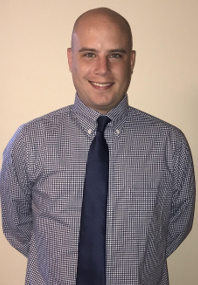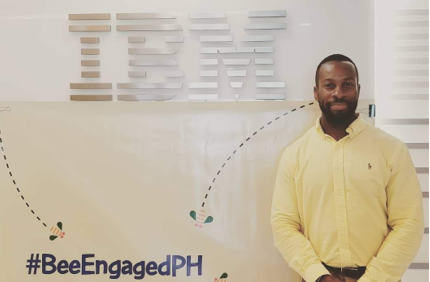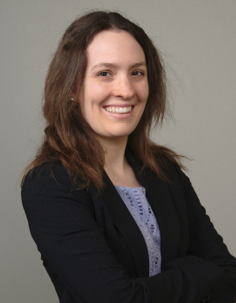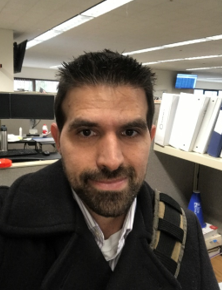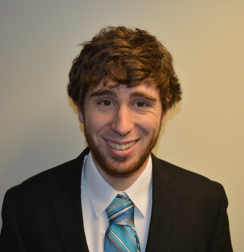In This Issue:
Welcome
It has been an exciting year.
- Our data analytics track is growing with Dr. Babajide Osatuyi, assistant professor of MIS, taking the lead teaching the courses in that track. MIS 481 Business Analytics is a newly-approved course being taught by him in addition to MIS 345 Introduction to Data Analytics and MIS 415 Social Media Management and Analytics.
- Scott McAuley, lecturer in MIS, offered our new programming course, MIS 315 Python Programming, this spring. It will be offered each semester and will count toward the programming requirement in all MIS tracks.
- We now are offering the Mendix low-code application development course MIS 433 Rapid Application Development. Russ Martin, lecturer in MIS who works for Mendix, teaches that course. Penn State has now acquired licensing to offer Mendix, with the Black School of Business being the first across the University to offer the course. This course will be valuable to students in all majors. Companies are looking for employees in all functional areas who can quickly respond to market changes through the low-code application development process. This means you do not have to be a programmer to understand this product.
The MIS Club elected a new executive board this semester. Members are Christian Brooks '20, president and MIS major; Matthew Popovnak ’20, vice president and software engineering major with an MIS minor; Spencer Randall ’19, treasurer and accounting and MIS major; and Evan Tatara ’20, MIS and PSCM double major with computer science and game development minors.
The club held two major events in the spring 2018 semester, a field trip to the Welch's plant in North East, Pennsylvania, to meet Chuck Todd, an IT professional at the company, and a presentation about information security by Behrend alumnus Adam Dzuricky ’02 with attendance of more than eighty. Our future plans involve more field trips with potential destinations that include the Amazon and Google headquarters.
Sincerely,
Dr. Kathleen Noce, Disciplinary Lead, MIS
Dr. Ash Deshmukh, Department Chair, Accounting and MIS
Faculty Spotlight
Kyle Chalupczynski, ’10, M.B.A. ’11
How would you describe your teaching style or method?
My goal in the classroom is to keep students as engaged as possible. Having been a student at Behrend not too long ago, I remember the classroom experiences that really made a positive impression on me, and I aim to emulate that experience for my students. To that end, I am a big believer in “Learning by Doing.” I strongly believe in the value of a hands-on experience in making a lesson stick. This approach allows students to work through mistakes to come to a fuller understanding of complex concepts.
What is your favorite part about being a faculty member?
While I have had rewarding experiences in my previous career, nothing has compared to the feeling of helping students. Whether it’s the “A-ha!” moment when working on an assignment or a student looking for career advice, it is humbling to think that, even if in a small way, I am making an impact.
What do you like to do in your free time?
I enjoy spending time with family and friends, listening to music, doing odd jobs around the house, and playing basketball.
Major achievements at Behrend?
I helped coordinate the MIS Club Speaker Series, recruiting presenters and facilitating the presentations. I also joined Delta Sigma Pi, Mu Pi Chapter, as a Faculty Initiate.
Alumni Spotlights
Jeremy O'Mard '13 - Management Information Systems
What is your current position and where?
Currently, I'm a managing consultant in IBM Federal Practice in the Washington, D.C., metro area. I currently serve as the infrastructure lead for a DoD project, Army Career Tracker, where I manage the IT infrastructure and the security of our web application.
How did you find your current job?
During my junior year at Behrend, I applied for an internship with IBM. Ironically, I had already received a co-op with IBM during that year, but the internship seemed more interesting and provided a steadier work schedule. I went and applied for the internship as part of one of the requirements for my CAS class. A few weeks later, I received an email stating I was selected to interview for the intern IT specialist position and that same internship eventually lead to me receiving an offer to join IBM full-time contingent upon graduating.
What steps did you take while at Behrend to help you prepare for your current job?
One thing I love about Behrend is the fact that the professors are extremely experienced in their field. The concepts that I learned in class truly captured what was going on in the workplace, which made the transition from student to full-time employee smooth. Additionally, I worked as a student IT consultant with Information Technology Services (ITS) at Behrend, so I had the opportunity to work with students from all walks of life to satisfy their IT needs. The skills that I gained during my time at Behrend gave me a distinct advantage and IBM management noticed that quickly.
What do you like best about your job or your employer?
The one thing I truly appreciate about IBM is the fact that they push all employees, whether you're an intern or a partner, to advance their education. Professional development is very important to management, and my project staff and HR manager have been very supportive of my career development.
Do you intend to pursue any further education or training?
Yes! I'm a firm believer that practitioners should stay up to date with the latest developments in their respective fields. I recently obtained my Amazon Web Services (AWS) Associate Solutions Architect certificate and finished a DevOps course and over the years I've picked up many certificates that directly relate to my area expertise such as my Certified Information Systems Security Professional (CISSP) certificate and my IT Infrastructure Library (ITIL), which focuses on IT Service Management, to name a few.
How has your minor/certifications helped you?
During my time at Behrend, I obtained a minor in Operations and Supply Chain Management and also received my SAP certificate. As a technical consultant, it's important to understand both technology and business. The structure of the MIS program coupled with the classes associated with my minor and certificate really gave me a good understanding of how IT impacts business and I've leveraged this knowledge time and time again to address my clients’ most pressing business needs while implementing IT solutions.
What advice do you have for future graduates?
The world is yours. If there's something that interests you, pursue it. Ask a friend or colleague if you don't know where to start, or visit your favorite search engine and do some research. It's important that you take initiative and become your biggest advocate because if you don't, you risk getting lost in the numbers game of corporate America/(insert your home country here).
What would you tell your college self if you could go back in time?
Those long nights and early mornings are going to pay off! Stay the course even when times get tough, never get too comfortable, treat your friends right, help those in need, pay it forward, and I promise you'll live a fulfilling life!
Fun fact - After completing several pro bono consulting gigs, I decided to start my own consulting firm, O'Mard Consulting Services LLC.
The mission of O’Mard Consulting Services LLC is to solve our customers’ technical needs by creating a safer digital experience. We make this possible by providing an extensive range of services, such as: risk assessments, web application vulnerability scanning, business continuity and incidence response plans, solutioning, and cyber awareness training.
Our organizational philosophy is simple: Plan, execute, win, and repeat.
Anna Reed ’19 - Concurrent Majors in MIS and Accounting
What is your major and minor if applicable?
I am majoring in MIS and accounting, and I have the Oracle and SAP certificates.
What will you do upon graduation?
In August I will be starting my career at PwC as a risk assurance associate in Tysons Corner, Virginia.
What attracted you to this particular company?
I initially gained an interest in PwC at a recruiting conference they had for Penn State students in the spring of my junior year. After the conference, I reached out the recruiter and sent a copy of my resume. We stayed in touch over the summer, and then I applied for one of their positions on Nittany Lion Careers in the fall.
One of the things that attracted me to this job is that I will be working on-site at client locations. I will have the opportunity to work with clients in various industries while helping to strengthen IT and internal controls.
What are some of your job responsibilities?
Some of my job responsibilities are to build and fortify IT and internal controls, develop and strengthen risk and compliance controls, advise companies on how to solve complex problems, and to develop innovative solutions to a wide range of clients.
What are your future career goals?
My goal is to become a CPA, and I am sitting for the first part of the CPA exam this summer. I plan to stay in the public accounting industry until I reach manager level, and I will possibly stay in this industry afterwards.
What advice about internships or job seeking would you give to current students?
I would suggest attending recruiting events that companies are having, and to always reach out to recruiters to thank them. Staying in contact can go a long way and can help to land a job.
Also, be sure to frequently check Nittany Lion Careers. A lot of great companies post jobs for Penn State students only.
Aaron Davidson ’19
What is your major and minor if applicable?
My major is Management Information Systems – System Analyst track
What is your current (or past) position and where?
I currently work as an IT administrator at Erie Insurance. I have been employed at Erie Insurance for a little over eight years.
How did you find your job?
My current position became a reality through working my way up to the position. Prior to Erie Insurance, I worked at Hamot as a computer operator. Then, just before UPMC affiliated with Hamot, a computer operation position became available with Erie Insurance. After three and a half years as a computer operator at Erie Insurance, an IT administrator position became available. Thanks to my experience as a computer operator and my experience with REXX programming, the manager of my position decided to give me the opportunity to become an IT administrator.
What attracted you to this particular job?
I have been interested in IT since I was 12, which is when I received my first computer. However, when I had my first exposure to an IBM mainframe through my computer operator job at Hamot, I knew a mainframe career was for me. The mainframe is a unique and challenging technology that not too many people know a lot about. I really enjoy supporting a technology that is unique and challenging. One thing that I like the most about my job is that there is always something to do, and I get to do a variety of tasks.
What are some of your job responsibilities?
I install, upgrade, and support the mainframe operating system and the software installed on the mainframe. In addition, since I am the main administrator for our automation software, I write programs in the REXX programming language to automate processes on the mainframe.
As an adult student, what are some of the benefits of returning to school? The challenges?
Returning to school and earning a bachelor’s or master’s degree opens many opportunities. It allows for adults to move up further in their career path or completely change their career path to something they are more passionate about. Although rewarding, returning to school can be challenging. As an adult, we generally have balance work and school. Sometimes it can be challenging, but it’s definitely doable.
What classes do you think will have them most impact on your career?
I think programming, systems design, and systems analysis classes have the largest impact on my career. Those classes teach students how to better plan for implementations of new software or technologies. Some of us feel the urge to jump in and implement, but for an implementation to be smooth, careful planning and anticipation for what can/will go wrong is very important.
What are your future career goals?
My future career goals are to reach senior level on the mainframe support team.
What advice about college would you give to adult students, current and future?
I think the most important piece of advice is to maintain an optimistic mindset. It can be rough going through college as an adult, especially when you must balance college with a job. On top of that, if you’re a student only attending part-time, it can take a while to complete a degree and there may be times you want to quit. However, keeping a positive mindset and surrounding yourself with supportive people really helps. For adults who haven’t taken the plunge, I’d say to go for it. The only person who can do it is you, and I can say from personal experience it will be well worth it in the end. Completing a college degree as an adult is a very rewarding and accomplishing feeling.
Student Spotlight
Matt Popovnak ’20 - Minor in MIS
What is your major and minor?
Major: Software Engineering
Minor: Management Information Systems
What is your current (or past) position and where?
Currently, I work as a tutor and IT consultant for Behrend Information Technology Services.
In a few weeks, I will be working as a quality assurance intern for Kodak Alaris in Rochester, New York.
How did you find your internship?
I applied to this position through LinkedIn.
What attracted you to this internship?
The experience should be very hands on. I will be working directly with professionals. There is also a good chance I will receive a full-time offer after the internship.
What are some of your responsibilities?
I will be thoroughly testing their current software applications with a variety of different software testing tools.
What is your biggest takeaway from your internship search?
The biggest I have noticed so far is when you seek a type of position; you should apply to as many possible. A good rule of thumb is to apply to a job once a day.
What classes had the most impact on your internship?
MIS 430 Systems Analysis as well as SWENG 431 Software Testing. Software Testing is crucial as it pertains to exactly what I will do with this internship. Systems Analysis gave me the business mentality I needed to make it past the final interviews.
What are your future career goals?
I would like to own my own software contracting company as well as work for a few different well-established firms to gain experience in the industry.
What advice about internships would you give to current students?
I would say never stop applying until you find a position you are satisfied with and do not be afraid to travel. It may not be ideal for everyone but internships are about learning and growing your professional experience. After all, it is only a summer!

